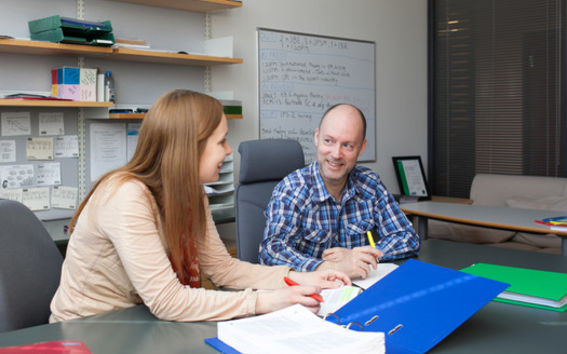Logistics

Logistics is the planning, implementing and controlling of cost-effective flow and storage of goods from raw materials to finished goods, as well as, managing related information and services. The mission of logistics is to get the right goods or services to the right place, at the right time, and in the desired condition and quantity in relation to customer orders. Our research is related to essential challenges of the definition above, such as efficient flows in product and service supply chains, novel and emerging business model development and procurement of industrial and public services as well as sustainability aspects related to these.
- Supply chain management (SCM) and sustainable SCM
- Digitalization in logistics and supply chains
- Complex supply networks
- Social sustainability in supply chains
- Supply chain risk and disruptions
- Behavioral experiments in supply chain management
- Public procurement and contracting out of public services
- Management of service networks
- The role of technologies in innovative pedagogies -Technology enabled service operations
- Digital Transport and Logistics Eco-System
- Supply Chain Efficiency
- Technology-Enabled Service Operations
Assistant Professor Max Finne: I currently research ways in which modern technologies can be used to improve the productivity, efficiency and effectiveness of service operations. For example, the finance industry has faced increasing automation of their core processes through technologies. I am fascinated of how parallel developments in a number of industries blur the boundary of service and manufacturing, which can dramatically change the ways service operations and organizations ought to be managed.
- Alternative Causes to Agency Problems in Inter-Organizational Relationships – Hidden Expectations vs. Hidden Action
Associate Professor Katri Kauppi, Academy of Finland funded 4-year research project: Principal-agent situations are cases where work is delegated, e.g. from a buyer to supplier. This research focuses on the problems that can arise in such situations, focusing on buyer-supplier relationships. An underlying assumption in agency research is opportunism: if the principal cannot monitor how the work is completed (hidden action exists), the agent will put in less effort and the principal will be unsatisfied with the results. This research challenges this assumption, arguing that unsatisfactory results in buyer-supplier relationships could instead be caused by hidden expectations: the principal has not explained in sufficient detail what they want the agent to do, thus the agent is unable to complete the task well, despite no opportunism. The goal is to investigate whether problems in buyer-supplier relationships are due to hidden expectations, rather than hidden action and find the correct governance mechanisms to these situations.
Max Finne
Associate Professor
Katri Kauppi
Associate Professor
Seongtae Kim
Associate Professor
Markku Kuula
Professor
Heikki Peura
Associate Professor
Gautam Basu
Professor of Practice
Ari Vepsäläinen
Professor (Emeritus)
Burak Celik
Postdoctoral Researcher
Nishat Choudhury
Postdoctoral Researcher
Reza Movarrei
Postdoctoral Researcher
Qiyue Chu
Doctoral Researcher
Yuxi Hou
Doctoral Researcher
Lauri Kuula
Doctoral Researcher
Phuong Phan
Doctoral Researcher
Mai Vo
Doctoral Researcher
Misa Bakajic
Visitor (part time doctoral student)
Ronja Dorairaju
Visitor (part time doctoral student)
Pham Thúy
Visitor (part time doctoral student)
Tran Thanh Toan
Visitor (part time doctoral student)
Martin Zistler
Visitor (part time doctoral student)






